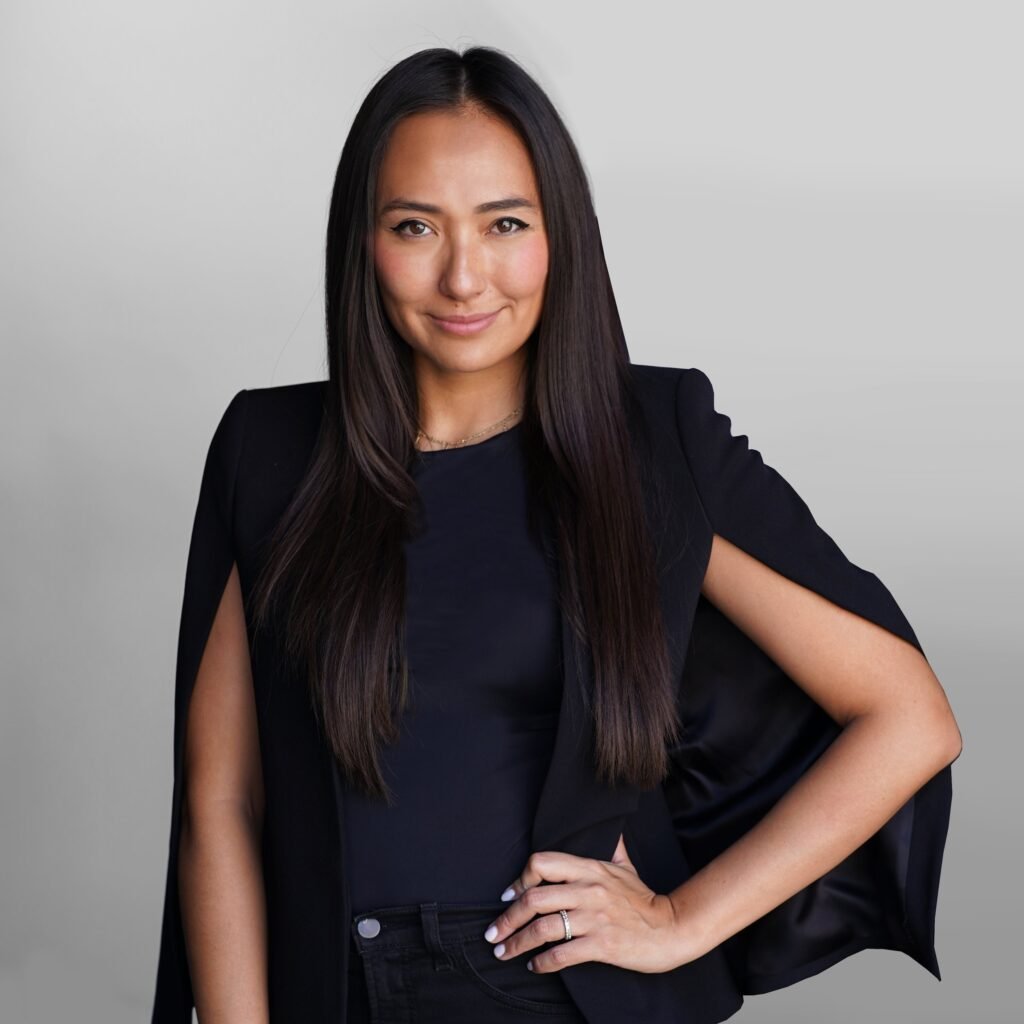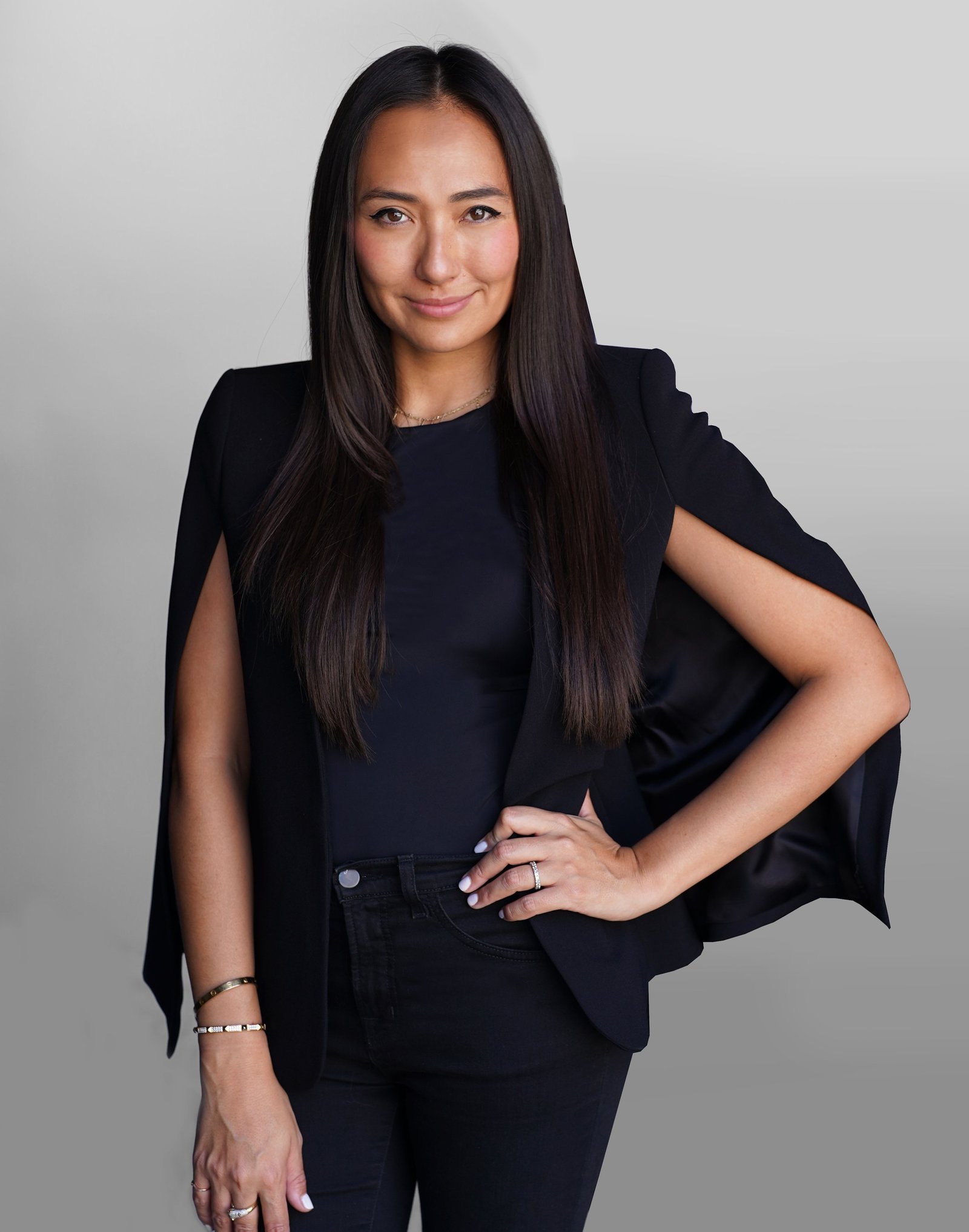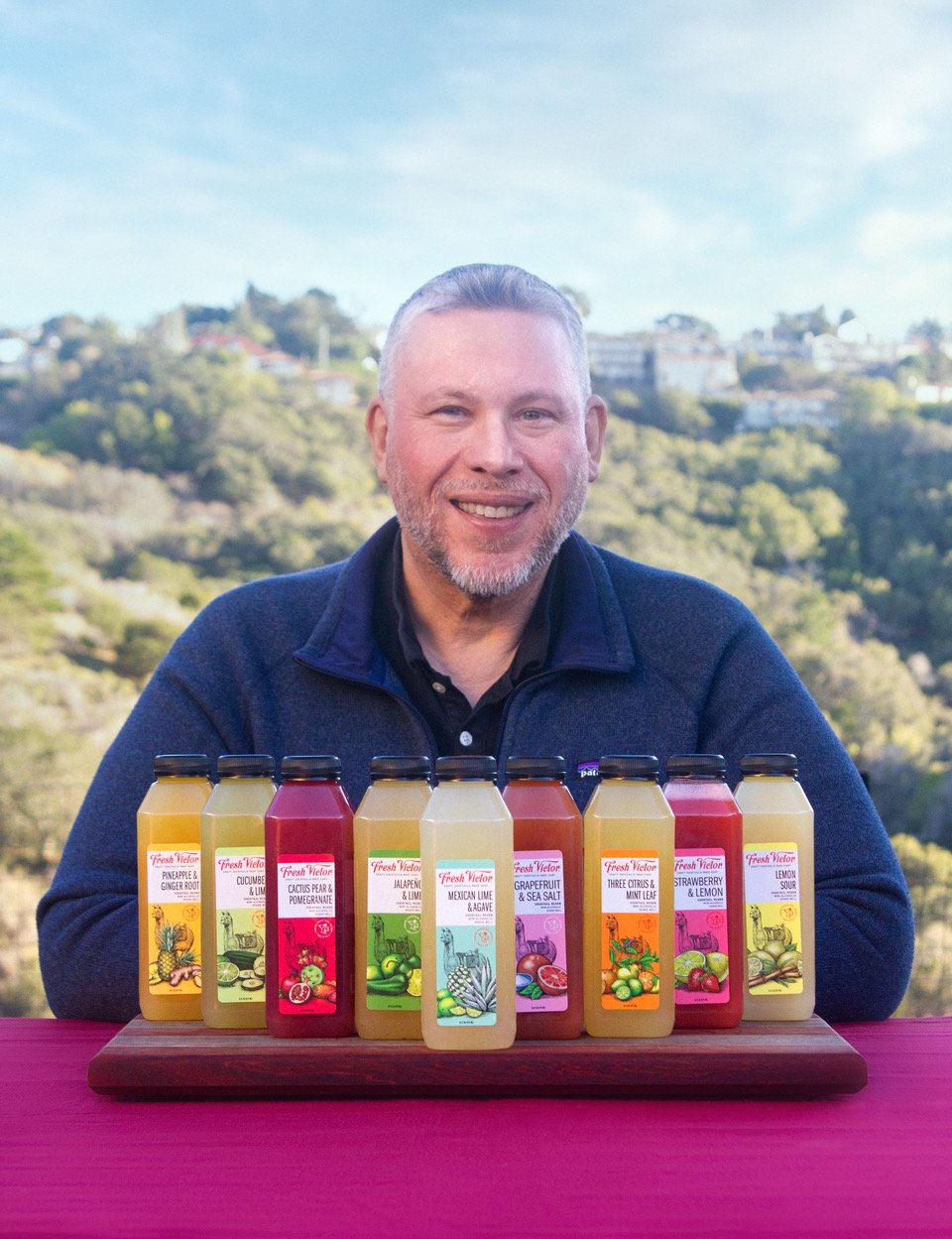I recently went one on one with Taylor Norris, Co-Founder and Co-CEO of LIT Method.
Adam: Thanks again for taking the time to share your advice. First things first, though, I am sure readers would love to learn more about you. How did you get here? What experiences, failures, setbacks, or challenges have been most instrumental to your growth?
Taylor: Adam, thank you so much for having me! Absolutely. I studied at Parsons School of Design. After graduating with a degree in product design, I moved to LA and one of my first jobs out of school was as a personal trainer in a small private gym. Low-impact workouts became my focus because not only had I noticed my clients suffering from a lot of injuries, I’d had an injury of my own.
Taylor: This is also the gym where I met my now husband, Justin Norris — who had also endured a life-threatening injury when he was a teenager. And we just really connected over this idea of what could be done with low-impact exercises. We were thinking, we’re barely into our 20s and going through some of the same challenges as many of our older clients. How are we going to come up with something that helps us and helps them — something that really focuses on longevity and injury prevention?
This was a small gym but word got around quickly because our approach was pretty unique. We were building recovery into one-on-one workouts. Soon enough, we were getting referrals from doctors and physical therapists all over LA. The truth is that at that point, we couldn’t help everyone we wanted to help if we kept it limited to private sessions.
We decided to expand into a group setting — and that’s how Low Impact Training was born! We opened our first studio in 2016. We were completely self-funded and believe me, it was a challenge to bring this space to life on such a small budget. Our first contractor stole our TI allowance and we lost 10K before we even started. But because a lot of our quality time spent was already doing DIY projects together, we figured we could buckle down and do the build-out ourselves. I don’t think it’s a coincidence that our mantra is ‘Building Bodies, Not Breaking Them,’ because everything we’ve done with LIT is about building spaces, products, and ideas from the ground up. And it’s pretty great that what I loved about our relationship and our interests has become such a critical part of what I now love so much about our brand.
But that wasn’t perfect. It wasn’t all sunshines and rainbows back then. We hit a few snags during construction and flooded our entire place. Let me just say this. When we opened our flagship studio in West Hollywood in 2018, we didn’t make those mistakes again. The biggest lesson we learned from the first studio to our flagship was that we cannot be everywhere at once — and just because we love the adventure of being the masters of all trades, doesn’t mean it’s good for business. Basically, we learned to take ego out of it and ask for help.
It worked — when we finally opened our doors, we found instant success and sold out about 90% of classes. But we also knew that a retail space would always place a cap on our participants. We wanted to help as many people as possible, so we created our first product, the LIT Strength Machine, the world’s only all-in-one rower, reformer, and strength trainer. The machine is really the perfect combination of what Justin and I bring to the table. I’m all about form and he’s all about function. His lengthy history in physical fitness and personal training combined with my time training and my background in product designed turned out to be a great hybrid. We were able to take our studio experience and bring it to your living room — and our plan for this was all in motion before the pandemic. So we didn’t pivot to a product. We always had that in mind. The pandemic had its own challenges, especially with the supply chain, but our growth came from bootstrapping and from really trying to listen to and serve a demographic in need (50 million people in America have daily chronic pain and 52% of our members have persistent injuries).
Adam: How did you come up with your business idea? What advice do you have for others on how to come up with great ideas?
Taylor: Well, like I mentioned, this idea was born of necessity. We loved working out but there was no way that with the injuries we both had — Justin’s ended his prospective baseball and football careers at a young age, and mine certainly kept me from enjoying competitive tennis — that we were going to be able to sustain high-impact exercise forever. And the same was even more true of our clientele. Look, when we came up with this idea for Low Impact Training (LIT), we explained it the same way we do today. It’s preventive and it’s corrective — which means that in one workout, you are never going to run, jump, or do weights. But you are going to get the results you expect with those exercises by doing this trademarked hybrid of personal training, injury prevention, and physical therapy. This is Low Impact, not low intensity!
When we put this out there, not only was it an outside-the-box idea, but it was also in the complete opposite direction of the way the fitness market was moving. Back then, CrossFit was at the very top. But guess when people were getting injured? When they were doing CrossFit. Other brands were trying to mimic that experience but with different modalities. Rather than taking a traditional approach, we generated all of our business from doctors and physical therapists. We focused on providing a safe and efficient workout that reduced impact on injury-prone joints. And today, we take that same approach in our e-commerce business and are constantly challenging ourselves and our team to think outside the box and find a “white space” in the market. I advise looking at the market and finding a niche space you can penetrate as quickly and quietly as possible. Also, as cliche as it must sound, you gotta love what you do. I loved our idea because it combined all the things I’m passionate about and because it was much bigger than me. I was one person with an injury and I happened to have a degree in product design. But so many people were in need of a transformation in how they approached fitness — and Justin and I really believed, and still believe, we are the people cut out to develop, design, and continue building in this space. It was a feeling and I don’t know, you have to have that feeling that it’s something you love. That has an impact on what you build and how nimble you are able to be. So, basically, find what you love, and build from there.
Adam: How did you know your business idea was worth pursuing? What advice do you have on how to test a business idea best?
Taylor: We started small with one-on-one clients to test the concept! Little by little, we were able to make adjustments to scale the business into what it is today — with thousands of members worldwide in what we now affectionately call the Boltcult.
I think my advice is to scale when it makes sense. You have to get to each marker and then outgrow that marker before you move on. We outgrew the one-on-one training because we had a waiting list. We outgrew the first studio because we didn’t have enough space to accommodate the demand for the group classes. And we outgrew the flagship studio/retail space because we developed a proprietary product that could deliver that experience at home (which turned out to be necessary in a global pandemic). And even then, we wanted more portability, more flexibility for people, so we scaled to LIT AXIS, which is the world’s first connected smart resistance training system that fits entirely in the palm of your hand.
My advice is that scaling is necessary for growth, but scaling responsibly and in tune with the specific needs of your customers is the only way to do it efficiently. There’s no skipping from A directly to Z. You have to go through each of the growing pains — and honestly, people may not want to hear this right now, but that’s probably where you’ll learn the most about yourself, about the company’s potential, and certainly about how you can test your next big idea!
Adam: What key steps have you taken to grow your business? What advice do you have for others on how to take their businesses to the next level?
After we launched our first product, we realized that bootstrapping would only get us so far. We decided to raise our first round of outside capital to accelerate growth and closed our seed round in 2021. My advice to anyone looking to grow their business or raise capital is to focus on your partners! We are beyond grateful for our investors and wouldn’t be where we are today without them. Choose wisely because you are going to have to raise more than once and you want to make sure you pick the people you believe in — and who believe in you — along the way.
Adam: What are your best sales and marketing tips?
Taylor: We live by a 360 approach in our business. We strive to deliver the best experience possible, and customers notice everything. As they should, they deserve the best! From logistics to customer service, to marketing and sales, every customer touchpoint needs to be seamless and if it’s not, it needs to be refined until it is. We speak directly to our members as much as possible. My advice would be to focus on the details — customers will notice and they will stay because of it.
Adam: In your experience, what are the defining qualities of an effective leader? How can leaders and aspiring leaders take their leadership skills to the next level?
Over the years, I have learned that leadership means many different things, but the one thing I have noticed is that people want to be inspired. It’s that idea that we all want to be part of something bigger than just us, right? So I think in terms of the qualities I expect of myself as a leader, I have to say that I take my role as motivator very seriously. I want my team to have a sincere connection and attachment to what we’re building, because otherwise, what’s the point?
Also, my energy sets the tone for everyone around me and I try to be very aware of that. Also, I think a leader really needs to have tunnel vision on the mission, but simultaneously maintain the ability to keep a 30,000-foot view of operations. Like I said when talking about scale, nothing you’re going to do will take you directly from A to Z. But that doesn’t mean you aren’t responsible for that big picture, for that trajectory, and for piecing together all the details that will make that a reality.
Justin and I have a whiteboard in our office and I joke about how our scribbles remind me of the chalkboard in Good Will Hunting or the writing in A Beautiful Mind — I’m not saying we’re that smart. But the vision is there somewhere in our mess and I like that we can connect those dots together and with our team.
My advice for aspiring leaders is to be the dumbest person in the room. Whenever that is possible, be the dumbest person in the room. Because if you are, three things are going to come out of that leadership lesson for you: (1) You’ll realize there’s always more to learn, which means there is room to grow (financially and more importantly, as a human being). (2) You will learn when it’s best to talk less and listen more — which is more often than you might think. (3) You won’t get too comfortable.
I’m not saying there’s anything wrong with comfort or self-care. By comfortable, I mean you won’t bore yourself. Justin framed a sign in our office we were given by our Head of Brand Development. It has only five words and they are literally impossible not to see when we walk into the room: Comfort is a slow death.
Adam: What is your best advice on building, leading, and managing teams?
Taylor: There is a saying that you are only as good as your team, and that couldn’t be more true in business. At LIT, we are a small team but the very best team. When you are in growth mode, communicating and delegating is essential so people can focus on their strengths. Poor communication and negativity can tank the ship, so focus on creating a positive and inspiring work environment, and not only will your team appreciate that atmosphere, but they will hopefully genuinely believe in leadership and in the mission.
Adam: What are your three best tips for entrepreneurs, executives, and civic leaders?
Taylor: Three is going to detract from the one that needs to remain at the top of any list, so I’m just going to say this one and know that I would have it as my first, second, and third tip to any leader. LOVE WHAT YOU DO. That’s it. That’s the tip.
Steve Jobs told a lot of people that “The only way to do great work is to love what you do.” I couldn’t agree more. Because if you don’t, it will be hard to ever catch up with the idea of what could’ve been.
Adam: What is the best advice you have ever received?
Taylor: The best advice I have ever received is to dream bigger than you ever thought possible and take ego out of it. Trust me, whoever is reading this…your idea is never too big. It may require scaling. It may require time, patience, and discipline…but it is within reach. Especially if you surround yourself with people as much or even more talented, compassionate, and dedicated than you.









